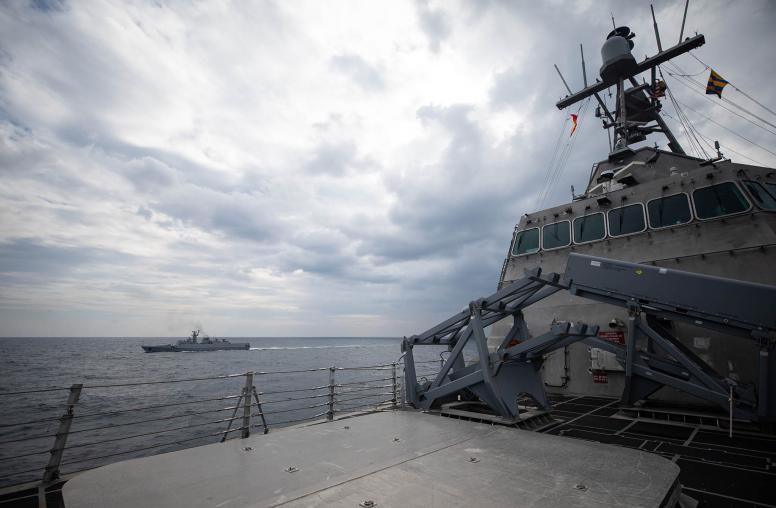In 2012, USIP and the Woodrow Wilson Center published “The Islamists are Coming: Who They Really Are”—an original book and regularly updated website—to provide information and analysis about the diverse spectrum of Islamist political movements; from peaceful groups to jihadi extremists.

Experts from three continents analyze the origins, evolution, and goals of groups across the Middle East and North Africa and examine the diversity of political philosophies that distinguish movements—as well as the economic and social pressures that shape their agendas. The project’s goal is to deepen the understanding of a multi-layered political and national security challenge.
In the wake of the Arab uprisings, many Islamist groups ran in elections—and won—after years of operating in exile or underground. Their growing clout changed the balance of power in the region. However, the groups were too often lumped together despite their disparate goals and diverse constituencies. “The Islamists Are Coming” was the first book to survey the evolution and impact of Islamist movements.
About The Islamists
Provide objective information and analysis
The team continuously updates The Islamists website with coverage of Islamist political movements and jihadi groups in more than a dozen countries in the Middle East and North Africa. Staff conduct original research to produce articles, and outside experts also contribute analysis.
Contribute to the national conversation on foreign policy issues
Staff members contribute expertise at conferences, public events, and private roundtables domestically and abroad. They also provide analysis to the media and brief members of Congress and their staff, officials from the Pentagon and State Department, the intelligence community, and U.S. service academies.
Foster dialogue on the Middle East’s latest political, economic, and social trends
The team builds relationships with U.S. government agencies, congressional offices, and foreign diplomats, as well as think thanks, foreign affairs analysts, economists, and youth and women’s rights activists. The program also hosts public events on evolving trends.
Featured Resources
- James Jeffrey Series on ISIS: Its Fighters, Prisoners and Future
Ambassador Jim Jeffrey, former special envoy on ISIS, explores the future of ISIS as a military threat, the long-term challenges of jihadi prisoners and their families, current tactics of the anti-ISIS coalition, and regional politics after the fall of the caliphate. He also assesses the impact of ISIS on Iraq, Syria, Turkey and Iran. He explores the prospects of a future caliphate. Jeffrey joined the Wilson Center in December 2020 as Chair of the Middle East Program. - The U.S. and the Aftermath of ISIS
Nearly two years after the caliphate’s collapse, ISIS had some 10,000 fighters challenging U.S. interests in Iraq and Syria, with the potential to regain control of territory and regenerate jihadi-run fiefdoms. - Jihadism: A Generation After 9/11
Nineteen years after 9/11, al Qaeda and ISIS had limited means to strike the West. Both movements were deeply embroiled in the insurgencies and civil wars across the Middle East and North Africa.




